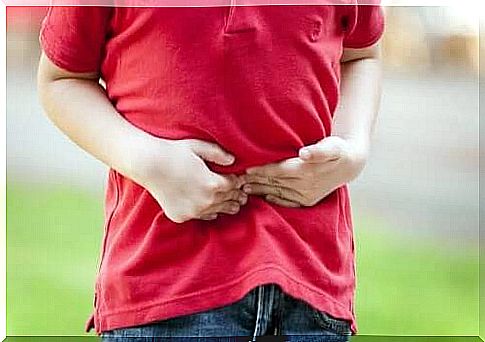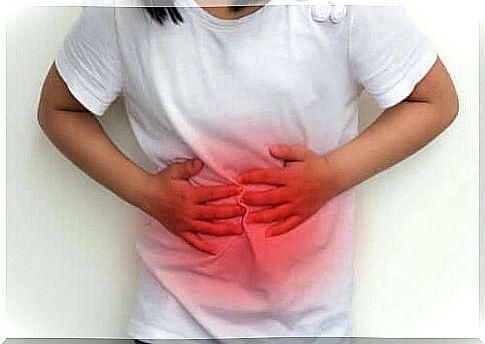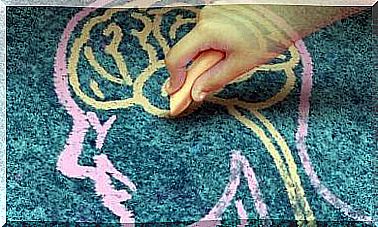Food For Children With Crohn’s Disease

With Crohn’s disease, it is important to follow a specific diet to relieve symptoms and prevent flare-ups. So if your child suffers from this disease, we’ll show you how to feed children with Crohn’s disease here.
What should food be like for children with Crohn’s disease?
What is Crohn’s Disease?
Crohn’s disease is a type of chronic inflammatory bowel disease whose origin, although attributed to different factors, is unknown. It is more common among young adults, although it can also affect children.
What are the symptoms?
It is characterized by inflammation of the mucosa in a delimited area of the intestine and can be accompanied by lesions in the intestine whose appearance is unpredictable. It presents alternating more or less prolonged outbreaks, during which disease activity stabilizes.
Crohn’s disease can present symptoms and complications that affect the patient’s quality of life, especially during exacerbations. The main symptoms that can appear in Crohn’s disease in children are intestinal:

- Abdominal pain.
- Frequent stools, chronic diarrhea.
- Damage in the anal region (fissures, fistulas, abscesses).
- Tiredness.
- Lack of appetite, weight loss that usually occurs during exacerbations.
Diet in Crohn’s Disease
Epidemiological studies have proven that there are certain foods that are a protective factor. On the other hand, the consumption of other foods increases the cases of the disease.
For example, breastfeeding has been shown to be a protective factor to prevent the onset of the disease, as shown in this article published in Alimentary pharmacology & therapeutics , possibly because of the benefits that milk conveys through immunoglobulins and antibodies produced by the mother, in addition to fact that breast milk contains oligosaccharides, which favor the growth of beneficial bacteria for the intestine.
Feeding patterns for children with Crohn’s disease vary depending on whether they are in an asymptomatic phase or if they are experiencing an outbreak.
Diet during the remission or asymptomatic phase
Foods to avoid
- Flatulent foods such as kale, cauliflower, whole grains, fizzy drinks, unpeeled pulses.
- Built-in.
- Butter, milk and cheese.
- Sorbitol-containing foods : candies, chewing gum, light beverages .
Foods to be favored
- Blue fish, rich in omega 3. Omega 3 has a protective effect on this disease as it is anti-inflammatory.
- White fish, white meat and lean pork.
- Avocado and olive oil, as they are rich in vitamin E, which helps to keep the inner mucous membranes of the digestive system hydrated.
- Papaya, mango, carrot, pumpkin, because of their beta-carotene content.
- Probiotic foods, such as yogurt or kefir, if tolerated.
Diet During a Crohn’s Outbreak
When there are outbreaks in the child, feeding should be modified depending on the discomfort he is feeling. The diet at this stage should generally be hypercaloric, low in fat and high in protein, low in fiber, anti-inflammatory, moisturizing and easily digestible. The recommendations, therefore, are as follows:

- Avoid the consumption of insoluble fiber from whole grains, fruit peels and legume peels.
- Do not consume foods rich in animal and saturated fat : butter, margarine, cream, red meat, sausages, sweets, cheese.
- Follow a gluten-free and lactose-free diet, especially if you have diarrhea.
- Consume foods that provide soluble fiber in small amounts : marmalade, boiled or roasted apples and pears, boiled carrots.
- Hydrate yourself with water, vegetable broth or oral serum.
Food for children with Crohn’s disease. nutritional complications
A child with Crohn’s disease may be underweight and stunted. Deficiencies of some specific nutrients are also frequent, thus resulting in problems such as anemia or low bone mineral density.
So if your child is underweight, remember these recommendations:
- Instead of drinking plain milk, it is better for the child to drink a smoothie with fruits and cereals.
- Fruits can be served with yogurt, if tolerated, and grated oilseeds.
- Be generous with the oil you add to meals.
- Include foods with a pasty texture, as they are sometimes better tolerated.
- Add homemade sauces to meat or fish that are not milk-based or cream-based.
This is a complicated disease, as it varies with each child and the stage they are in. So don’t forget to consult a professional.









